Congregation History
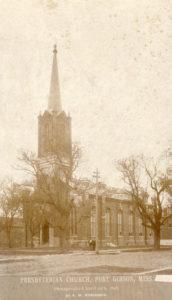 On March 29, 1798, the Spanish flag was lowered for the last time at the old fort in Natchez. For nineteen years, this region had been closed to Protestant activity. An act of Congress, approved April 7, 1798, created the Mississippi Territory.
On March 29, 1798, the Spanish flag was lowered for the last time at the old fort in Natchez. For nineteen years, this region had been closed to Protestant activity. An act of Congress, approved April 7, 1798, created the Mississippi Territory.
In the year 1800 the Synod of Carolina sent three ministers to visit the American settlements in the Southwest: James Hall, James Bowman, and William Montgomery. Although no Presbyterians were found in the tiny settlement of Port Gibson, a sufficient number of families were found a few miles to the southwest to establish a preaching station. The history of our congregation dates to the month of December of this very year.
The three missionaries left the Territory in April 1801 after establishing nine preaching stations. These men were allowed to return to their pastorates but others were sent to serve the preaching stations on a rotating basis in a circuit.
The first Presbyterian minister to settle permanently in the Mississippi Territory was Joseph Bullen. Mr. Bullen, a New Englander, was sent out in 1789 by the Board of Missions of New York as a missionary to the Chickasaw Indians in northeast Mississippi. In 1803 he moved to Jefferson County near the town of Greenville. The first Presbyterian Church in the Mississippi Territory, Bethel, was organized in 1804 by Rev. Bullen, near Uniontown, in Jefferson County, not far from the Mount Locust site on the Natchez Trace.
In 1807, Rev. Joseph Bullen and Rev. James Smylie organized the Bayou Pierre Church.
A meeting house of logs was built on land belonging to Joseph Bullen which was later deeded to the church as a gift. The site, now called Point Lookout, and located about five miles west on the Old Rodney Road, served the congregation for some 20 years.
Because of a shift in population, on December 20, 1828, at a meeting of the Mississippi Presbytery, the name of the “Bayou Pierre Church” was changed to “The First Presbyterian Church of Port Gibson.”
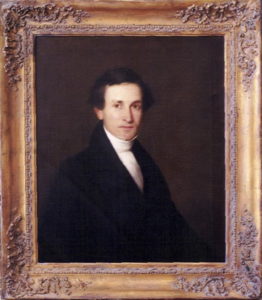
Dr. Zebulon Butler, a native of Wilkesbarre, Pennsylvania, was the first pastor of the congregation after they moved to town. He led them in a building program for the first house of worship on this site, which was constructed between the years 1829 and 1831. It was also made of brick, but was much smaller than the current structure. The last meeting of the Synod of Mississippi and South Alabama took place in the newly constructed house of worship in 1834. The next year, the new Synod of Mississippi was formed.
By 1859, the congregation numbered 160, and they decided to build the present structure. But because of threats of war, the northern contractor only completed the walls up to the parapet. Elder H.N. Spencer took over the project, and lent the congregation $8,000 to complete it, a debt which he forgave in his will. Mr. Spencer completed the building in December of 1860, the same month in which Dr. Butler died. His funeral is said to have been the first service held in the new sanctuary. The Synod of Mississippi met here in 1862, and again in 1906. This is the oldest known photograph of the interior of the Sanctuary, taken in 1903 after it was decorated for a wedding:
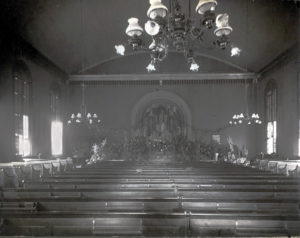
Our congregation has been blessed with outstanding pastoral leadership over the years:
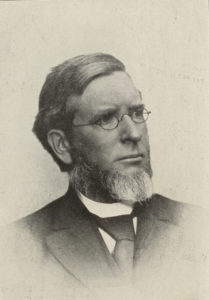
Dr. Robert Price preached for us from 1863 until 1870. He served as moderator of the Synod in 1866 and later went on to hold the Chair of History at Southwestern University, now Rhodes.
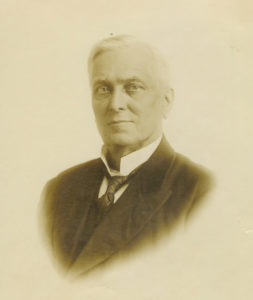
Dr. David Planck served the church from 1873 until 1888. He was instrumental in the location of Chamberlain-Hunt Academy in Port Gibson, and he taught English Literature, History, and Bible at the Academy for several years. After leaving Port Gibson, he served the Central Presbyterian Church in Mobile, Alabama for 30 years.
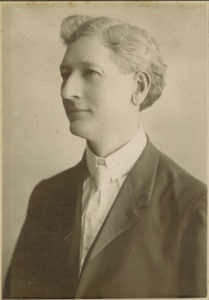
Rev. H.H. Brownlee served our congregation on two different occasions, between which times he was the President of Silliman Institute in Clinton, Louisiana.
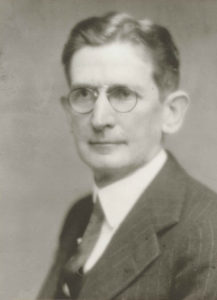
Rev. Marion E. Melvin served our congregation, and then went to Chamberlain-Hunt to be its President. Afterward, he became President of Westminster College in Fulton, Missouri.
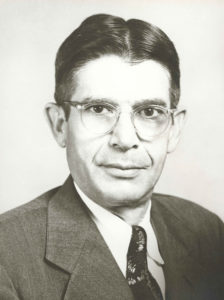
After serving as our pastor for six years, Rev. Wade H. Harrell returned to Port Gibson to be the President of Chamberlain-Hunt. In 1948, he was the stated clerk and executive secretary of Savannah Presbytery.
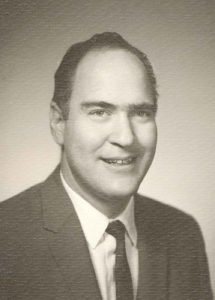
Rev. David N. Daniels had the longest tenure of any of our installed pastors. A stone tablet, commissioned in his honor in 2002, reads as follows: “For 34 years, from 1963 until 1996, he was a caring pastor, a faithful presbyter, a devoted teacher, and a shining example of Christ’s love in our midst. In stormy times he was a tireless advocate for the peace and unity of the Church.” Rev. Daniels was elected Pastor Emeritus in 1997 and died in 2009, also having supplied the pulpit at Yokena Presbyterian Church for 44 years.
The congregation remained a faithful member of the Presbytery of Mississippi during the 1970’s and 1980’s, when the Presbyterian Church in the United States was divided and the Presbyterian Church in America was formed. But after years of faithful efforts to reform the Presbyterian Church (U.S.A.) in a more Biblical direction, in May of 2012 the Presbytery of Mississippi granted the congregation’s request to be dismissed to the Central South Presbytery of the Evangelical Presbyterian Church. The confessional standards and theological distinctives of the EPC can be found at www.epc.org.
Since the removal of the church to Port Gibson, seventeen regularly installed ministers have served this congregation.
- Zebulon Butler 1828-1860
- Robert Price 1863-1870
- David A. Planck 1873-1889
- Hervey H. Brownlee 1890-1904
- Marion E. Melvin 1904-1908
- Robert Lee Benn 1909-1910
- Walter F. Creson 1911-1920
- Hervey H. Brownlee 1920-1926
- T. B. Hay 1926-1931
- Wade H. Harrell 1932-1938
- S. Evans Brown 1938-1941
- Alfred N. Moffett 1942-1948
- William B. Lowrance 1950-1956
- William P. Shows 1956-1958
- Leonard Van Horn 1959-1962
- David N. Daniels 1963-1996
- Michael G. Herrin 1997-Present
We praise God for His faithfulness to this congregation over so many years. He has blessed us with a rich heritage, but it is not our desire to become a museum to house the things of the past. Instead, God calls this generation to the same work our ancestors have done since 1807: to proclaim to the world that, by His free grace, God saves sinners through faith alone in Christ alone. Our heart’s desire is that people would not simply gaze upon our steeple, with its hand pointing to heaven, but instead lift their eyes to the transcendent God to Whom it points.
If you would like to download a brochure about Congregation History, CLICK HERE.



